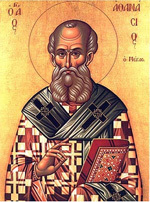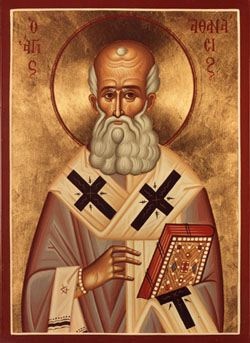
When Achillas bishop of Alexandria died in 313, Alexander was elected, and after that Arius threw off all disguise. Alexander was particularly obnoxious to him, although so tolerant at first of the errors of Arius that the clergy nearly revolted. Finally the heresy was condemned in a council held in Alexandria, and later on, as is well known, in the general Council of Nicaea, whose Acts Alexander is credited with having drawn up. An additional merit of this great man is that during his priesthood he passed through the bloody persecutions of Galerius, Maximinus, and others. It was while his predecessor Peter was in prison, waiting for martyrdom, that he and Achillas succeeded in reaching the pontiff, and interceded for the reinstatement of Arius, which Peter absolutely refused declaring that Arius was doomed to perdition. The refusal evidently had little effect, for when Achillas succeeded Peter, Arius was made a priest; and when in turn Alexander came to the see, the heretic was still tolerated.
It is worth recording that the great Athanasius succeeded Alexander, the dying pontiff compelling the future doctor of the Church to accept the post. Alexander is described as "a man held in the highest honour by the people and clergy, magnificent, liberal, eloquent, just, a lover of God and man, devoted to the poor, good and sweet to all, so mortified that he never broke his fast while the sun was in the heavens."
Alexander's epistle on the Arian heresy has survived and remains an important part of ecclesiastical literature. Alexander was a champion of orthodox Catholic teaching.
He died in Alexandria two years after his return from the council.
St. Alexander was also famous for his charity to the poor and his doctrine on life.





